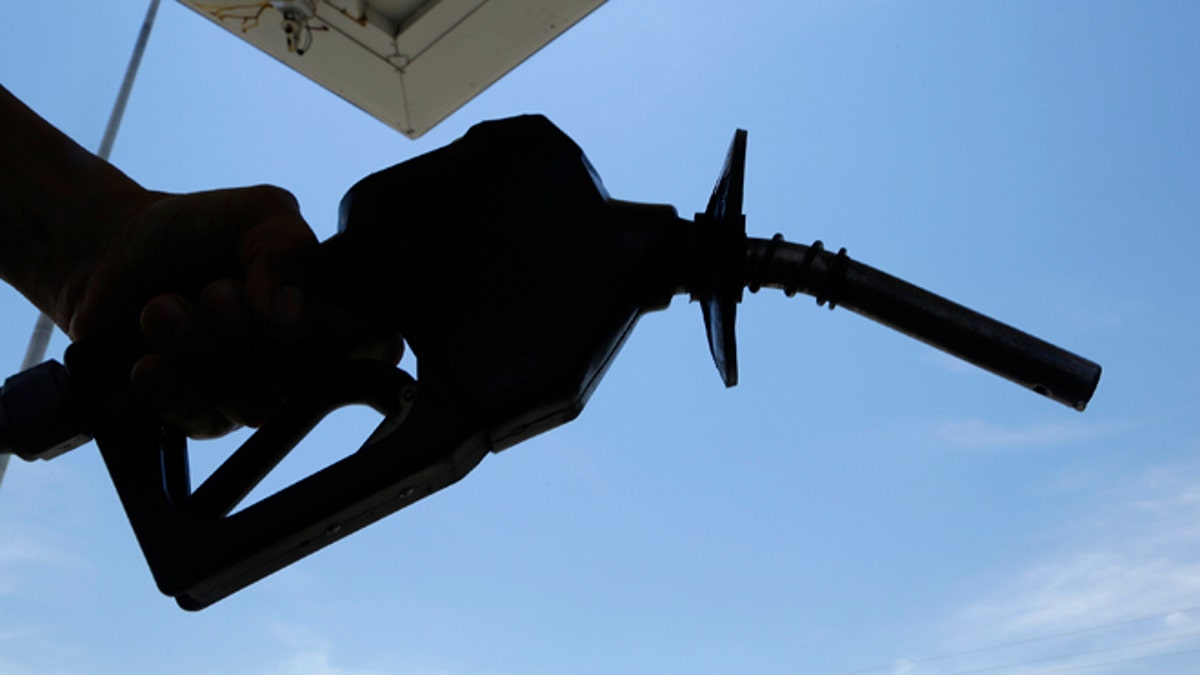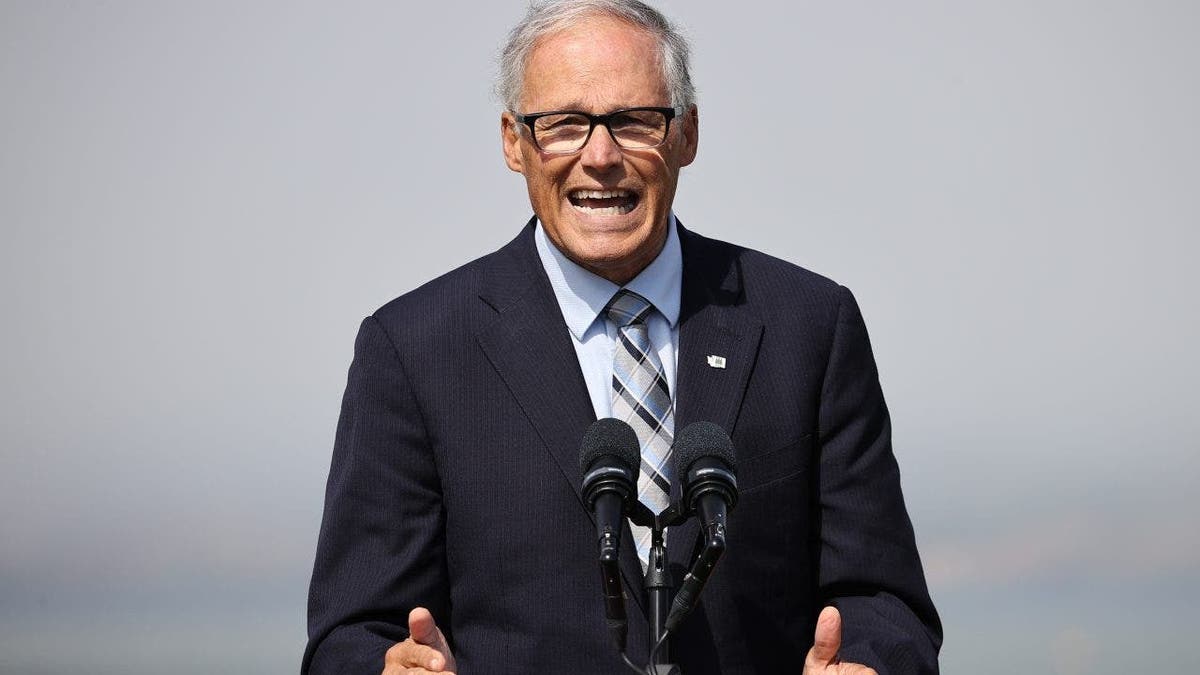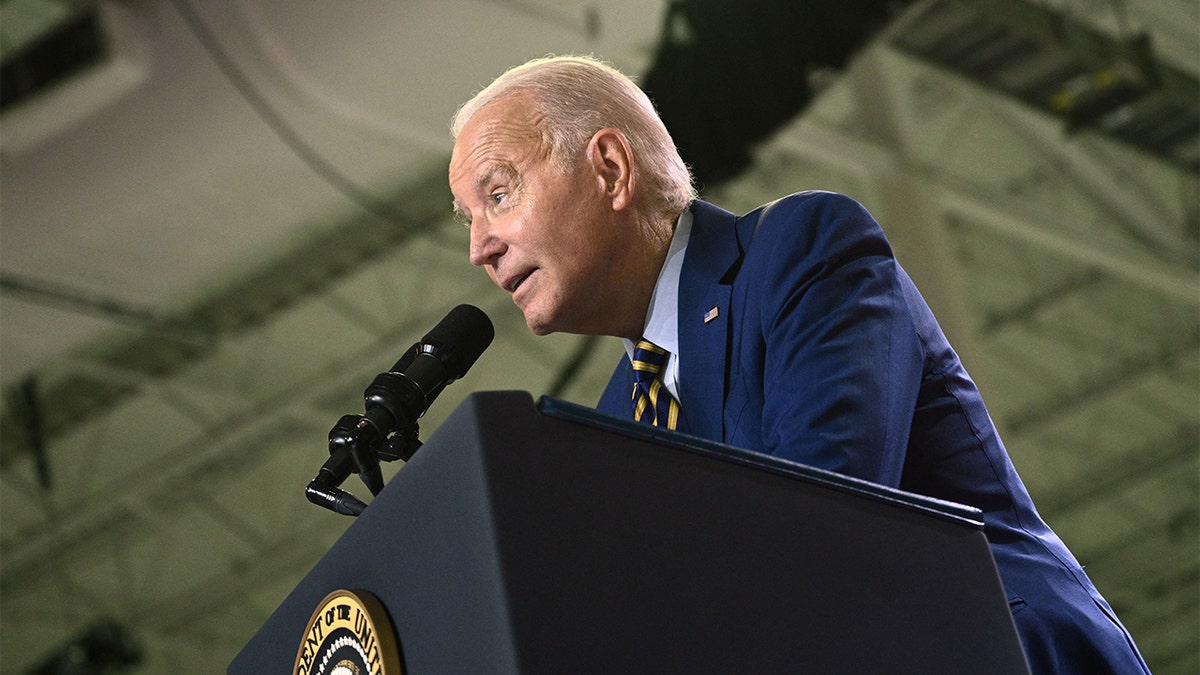Vacationers hitting the highways currently face a nationwide average price of $3.52 per gallon of gasoline, according AAA. However, the price varies widely among states.
California usually leads the nation and is currently at a sky-high $4.85 per gallon, but this year it has been eclipsed by Washington state at a hefty $4.98 per gallon. The reason is clear – costly climate change policies adopted by both states – and it provides lessons for the rest of the nation.
The cheapest gas is in Mississippi at $2.96 per gallon, and several other states are under $3.30. This gives a real-world yardstick of what is possible at current oil prices.

What really sets Washington and California apart from other states is their climate policies targeting gasoline. (AP Photo/Seth Perlman, File)
So what explains the almost $2 extra for gas in Washington and California? Part of it is state gasoline taxes. The 18.4 cents per gallon federal tax is uniform, but state taxes vary, and both Washington state and California are higher than the average of 39 cents per gallon. Further, tough state refinery regulations and gasoline specifications also explain part of the difference.
But what really sets these two states apart from the others is their climate policies targeting gasoline.
California acted first with its low carbon fuel standard and cap and trade program, both of which have been around for years and are estimated to add 47 cents per gallon to the current price. But Washington has been making up for lost time in 2023 with its stringent new Climate Commitment Act.
Like California’s measures, Washington’s effectively puts a price on the carbon content of gasoline sold in the state, and is a big reason behind the estimated 35 to 52 cent jump in prices compared to neighboring states, according to Todd Myers of the Washington Policy Center. And it will get worse, as this is just the first year of the law, which gets progressively more stringent in the years ahead.
Many proponents of the Climate Commitment Act predicted the price increases and asserted that the extra pain at the pump is needed to wean drivers away from gasoline and fight climate change.
But now they have changed their tune in response to the unpopularity of the measure and are blaming corporate greed by speculating that the law somehow provided fuel producers with the opportunity to manipulate market prices higher. However, the increases are entirely in line with the per gallon cost of the program so far.

Washington Gov. Jay Inslee speaks during the climate agreement event that included California Gov. Gavin Newsom, Oregon Gov. Kate Brown and British Columbia Premier John Horgan on Oct. 6, 2022, in San Francisco. (Tayfun Coskun/Anadolu Agency via Getty Images)
CLICK HERE TO GET THE OPINION NEWSLETTER
Washington Gov. Jay Inslee has similarly attempted to shift blame for his support of the Climate Commitment Act -- as well as his earlier claims that the per gallon cost impact "would be pennies" -- by making unsupported claims of industry price gouging. He has also noted that a pipeline serving the state is currently offline for maintenance, but the Olympic pipeline also serves Oregon, where gasoline prices are 35 cents per gallon lower.
Inslee considers climate change the "defining challenge of our time" and has thus far shot down any potential changes to the law that might cushion the consumer impact.

President Biden speaks about a new manufacturing partnership in West Columbia, South Carolina, on July 6, 2023. (Brendan Smialowski/AFP via Getty Images)
The warning for other states and the federal government could not be clearer – any serious attempt to penalize gasoline for its supposed contribution to climate change will lead to noticeably more pain at the pump. Unfortunately, the Biden administration is every bit supportive of this agenda as Inslee and is inching the country in the same direction via a number of measures done in the name of addressing climate change.
CLICK HERE TO GET THE FOX NEWS APP
These measures include curtailed oil leasing on federal lands, opposition to Keystone XL and other needed pipelines, new fees applicable to drilling operations, and pressure on banks not to lend to oil companies.
In time this agenda could push nationwide prices much closer to what Washingtonians and Californians are experiencing today.
CLICK HERE TO READ MORE FROM BEN LIEBERMAN
George Murray is a research associate at the Competitive Enterprise Institute.











































